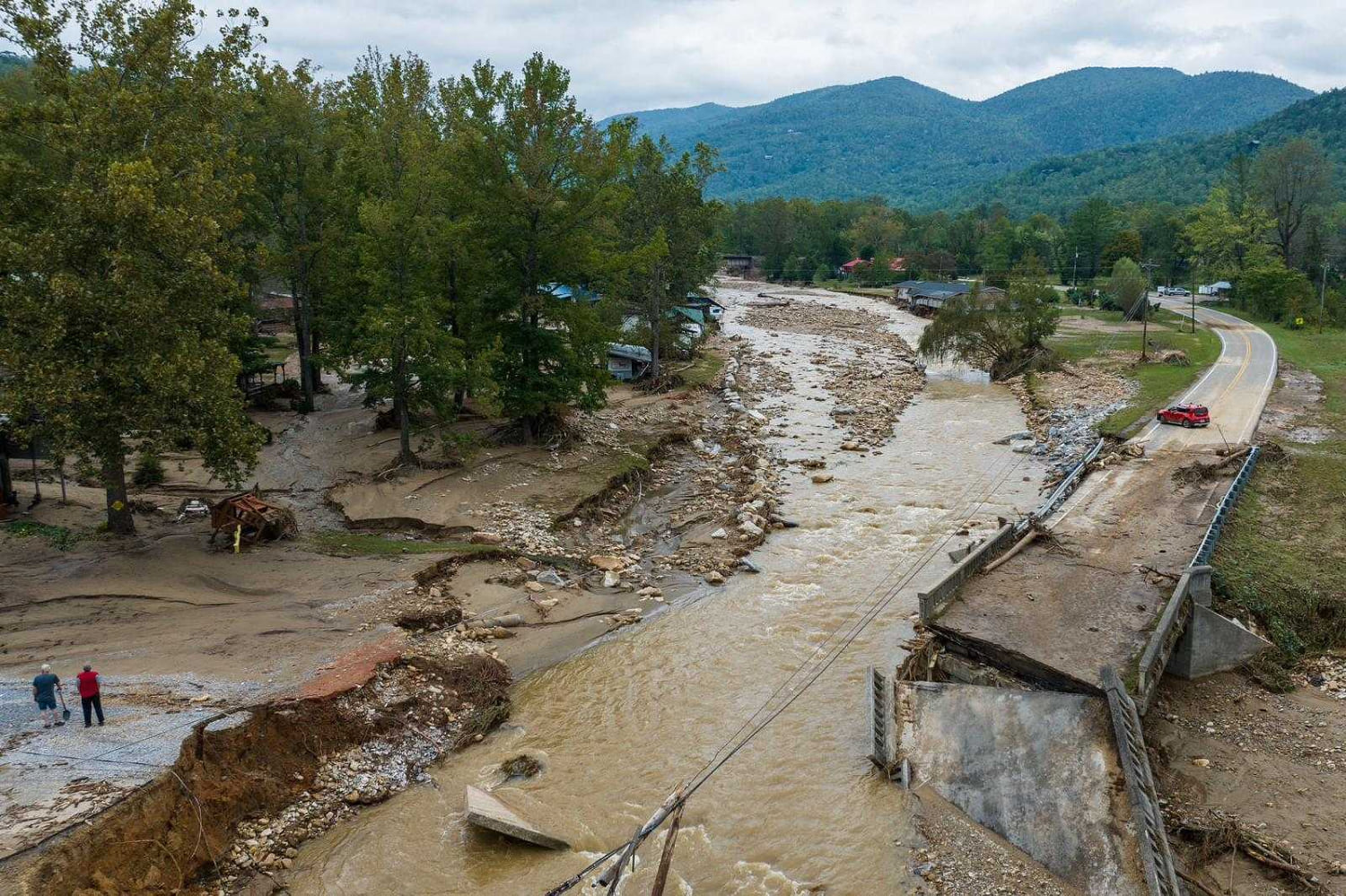
Hard to fill the gap
In a statement published online Thursday, Baxter said it doesn’t yet have a timeline for when operations will be back up and running.
A part of the problem, the company said, is that bridges to its site were damaged in the storm, limiting transport in and out.
The Department of Health and Human Services and the agency’s Administration for Strategic Preparedness and Response are working with Baxter to assess damage and help with recovery efforts.
A spokesperson for HHS said the government is focused on “reducing supply chain disruptions that may result from damage to the facility and surrounding infrastructure.”
In addition to Baxter, the spokesperson said, two other large manufacturers of IV fluids in the U.S. are also working to increase supply.
“FDA’s drug shortage office is in touch with Baxter about impacts to products manufactured at the facility and will continue to coordinate with FEMA to assist the company with cleanup of the facility,” the spokesperson said.
One of the manufacturers working to increase supply is B. Braun Medical, which accounts for about 23% of the IV fluids market, a company spokesperson said.
The spokesperson said the company is looking to increase the supply of the “most critical products” or “hospital workhorses,” such as large-volume bags — 500 milliliters to 2,000 milliliters — of sodium chloride, sterile water and lactated ringers.
B. Braun Medical is also hiring new employees and hopes to be running 24/7 at two of its facilities in the coming weeks. It also has looked to bring in product from abroad; however, ports across the East and Gulf coasts are closed because of the port strike, compounding the issue.
Even so, it will be difficult to make up for the gap left by Baxter.
“We’re anticipating that there will be major constraints on the U.S. supply of IV fluids as a result of the production outage at Baxter’s North Cove plant,” the company’s spokesperson said in a statement.
ICU Medical, another IV fluid supplier, said it’s monitoring for potential increases in demand.
The company has “already taken necessary steps to increase production to help meet market needs,” spokesperson Harrison Richards said.
Hospitals prepare
In the meantime, hospitals are taking steps to make sure patients still have the IV fluids they need.
RWJBarnabas Health, based in New Jersey, said it’s taking “appropriate conservation measures” across its health system as it assesses the supply affected by Baxter.
“At this time, there is no impact to patient care,” said Carrie Cristello, a spokesperson for RWJBarnabas. “We will continue to monitor the situation closely.”
In a statement, Oregon Health & Science University Hospital, which was also affected by the Baxter closure, said it’s keeping its community informed of any changes that could be needed in patient care, research or education missions.
The hospital is also using oral hydration options when possible, as well as evaluating each patient for the discontinuation of continuous IV fluids.
Northwestern Medicine in Illinois said its supply chain team is discussing conservation efforts, as well.
“We anticipate this will be a long-term issue,” said Jenny Nowatzke, a spokesperson.



